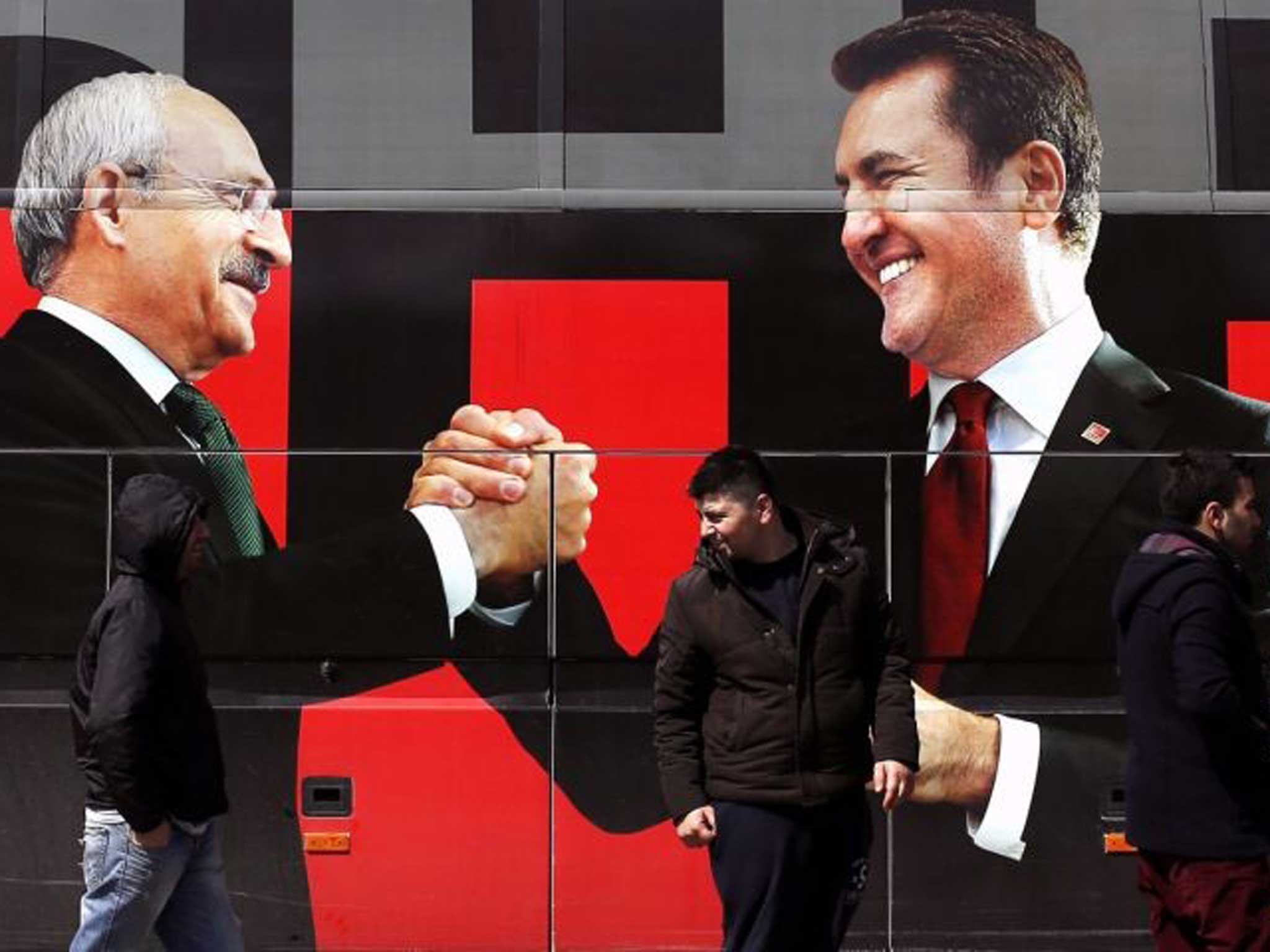Turkey to deliver verdict on Recep Tayyip Erdogan - the leader accused of heavy-handed repression after banning Twitter and YouTube
Voters can use local elections to show their discontent

Sitting on a podium, Mustafa Sarigul, the opposition mayoral candidate for Istanbul, conversed with a female audience in the Republican People’s Party’s city headquarters. “Erdogan chose to shut down Twitter, but then God has chosen to shut him up,” he said. The reference to the country’s premier losing his voice on Friday ahead of the local elections today prompted laughs.
The stakes for these municipal elections have been raised to a referendum on the ruling party’s leadership as it faces accusations of large-scale corruption and a heavy-handed repression during last summer’s Gezi protests. The bans on Twitter and YouTube have compounded matters to the point where, for Mr Sarigul, a win in Istanbul may pave the way to the country’s premiership.
While the Republican People’s Party, Turkey’s main opposition, has traditionally appealed to the country’s more liberal and Western-leaning voters, demographics are changing. Ilkur Kahraman, 40, was among the Turkish women in the audience wearing a scarf. “Sarigul loves everybody and makes no distinction on whether you’re wearing a scarf or not,” she said. “He brings us together against the dictator that is Erdogan.”
She used to vote for Recep Tayyip Erdogan because he represented her democratic and Muslim values. But today, like many Turks, Ms Kahraman fears her country is being polarised by his bellicose rhetoric. The Prime Minister has been locked in a toxic power feud with a moderate US-based Islamic cleric, Fethullah Gulen, who until recently supported him. The reclusive cleric is believed to have a strong footing in the country’s institutions, primarily the judiciary and police, through his large network of followers and scores of schools.
While not naming his rival directly, Mr Erdogan accuses a “parallel state” of triggering a widening graft probe that began with the arrests of the children of three of his ministers on 17 December and has been followed by a series of anonymously leaked audio recordings allegedly embroiling the premier in bribes and exposing the leader’s authoritarian streak. The successive leaks have prompted the government’s shutdown of Twitter and YouTube which, while they may have had some effect, caused international outrage and, in some quarters, ridicule.
Mr Sarigul accused the ruling Justice and Development Party of using illicit tricks to harm his campaign. The social media clampdown has not helped either. “It has greatly affected us, because it was our major medium to get through to voters and we’ve lost that connection now,” he said.
By contrast, with less than half of Turkey’s population using the internet and Mr Erdogan’s core voters stemming from more traditional backgrounds, the shutdown will not equally affect his AKP party. The prime minister has also tightened his administration’s grip over central institutions and is said to have purged the judiciary.
The shutdown came shortly after the posting of a video on YouTube in which senior officials were allegedly heard discussing military intervention in Syria. One voice implied a war could be “an opportunity” to deflect voters’ attention from local concerns ahead of elections. But the government branded the revelations as a “heinous treason”. Yesterday, Mr Erdogan told supporters: “Tomorrow we will teach those liars a lesson.”
In the early evening, in one of the cafés of the working-class district of Kasimpasa where Mr Erdogan was born, Servet Gemuz, 26, and Mesut Orzen, 24, were playing backgammon over tea and cigarettes. Mr Gemuz, a devout Muslim and a staunch supporter of the AKP, was oblivious to the bribery accusations. “I don’t care about what they say. I look at what Erdogan has done for the country and he has offered us a lot,” he said. His friend will also back the AKP, explaining that the party represents a pious yet progressive middle class whose values and needs were usually neglected. Polling predictions indicate the AKP will garner about 46 per cent of the vote.
Since Mr Erdogan’s party took power in 2002, Turkey has grown to become one of the world’s emerging economic giants. But the political feud and the Prime Minister’s authoritarian tendency could scare off investments. Some economists predict that a long-term contraction of the economy and a rise in unemployment could end Mr Erdogan’s popularity: the majority of his voters support him because of the country’s economic prosperity.
Whatever the outcome of today’s elections, both sides are nowhere close to backing down and political analysts fear the struggle will be bloody. Back at the café, while the men here can joke about their political differences over tea, many fear the antagonism between Mr Erdogan and Mr Gulen could tear apart a country where the pious and liberals had learned to coexist.
Subscribe to Independent Premium to bookmark this article
Want to bookmark your favourite articles and stories to read or reference later? Start your Independent Premium subscription today.

Join our commenting forum
Join thought-provoking conversations, follow other Independent readers and see their replies